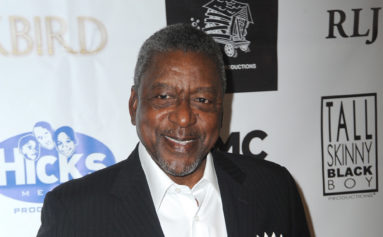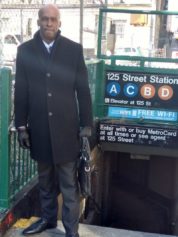In the aftermath of their heated primary battle, Representative Charles B. Rangel and his strongest challenger, State Senator Adriano Espaillat, look less like combatants resting after a hard-fought contest and more like rivals still in the middle of a race.
That is because, a little more than a week after Mr. Rangel appeared to win handily, the results are uncertain. Mr. Espaillat delivered a concession speech on June 26 as tallies showed Mr. Rangel leading by 20 percentage points. But now that electronic vote totals show Mr. Espaillat trailing by just 802 votes, with more than 2,000 paper ballots still being counted, he has gone to court to challenge the incumbent’s putative win.
In papers filed late on Tuesday, Mr. Espaillat asked that ballots be secured and a monitor be appointed if there was a recount, and raised the possibility of a new election if irregularities prevented a fair recount.
So on Wednesday, Mr. Rangel braved the heat to commemorate a national holiday, for all the world like a candidate on the trail. Dapper in an immaculate white sport coat, he stood on 125th Street before crowds of supporters chanting: “Charlie! Charlie!”
Taking advantage of the Fourth of July holiday and the accompanying news lull, Mr. Rangel was able not only to evoke patriotism and his long history in the civil rights movement, but also to attract a bevy of television cameras and news reporters with little else to do.
“Even though there were people in the United States when we formed that were brought here in chains,” he said, “this process is the best that mankind or humankind has ever thought of.”
He was defending the election workers who came under fire after it emerged that vote totals of zero had initially been recorded in 79 of the district’s 506 precincts, many of them in predominantly Latino areas where Mr. Espaillat was expected to do well. Mr. Espaillat’s supporters have said that Latino voters were told they were not on the rolls and made to fill out paper affidavit ballots.
“You can’t just call people crooks and allege illegal things,” Mr. Rangel said, urging the public to wait for the results of the official count before drawing conclusions of impropriety. “You can’t knock what you don’t know.”
He also reiterated a criticism his supporters had lobbed at Mr. Espaillat during the campaign: that Mr. Espaillat accepted help from an out-of-state “super PAC,” the anti-incumbent Campaign for Primary Accountability.
Each candidate appeared to be returning to a favorite campaign narrative, with Mr. Rangel portraying his challenger as an upstart putting political ambitions above the good of the community, and Mr. Espaillat implying that Mr. Rangel’s insider status may have given him an unfair advantage and that his political allies may have broken the rules.
Some of Mr. Rangel’s supporters leveled parallel accusations of rule-breaking against the Espaillat campaign. Eloise Paterson, a district resident and the sister-in-law of former Gov. David A. Paterson, said a Dominican neighbor had told her she was encouraged to vote even though she was not registered.
Ms. Paterson said she believed that many of the affidavit votes would end up being invalidated and that Mr. Rangel would prevail. “I think he’s going to survive the count,” she said.
Mr. Rangel spoke at a location that is iconic for African-American Harlem, near the statue of Adam Clayton Powell Jr., New York’s first black congressman, and reminded the crowd of his participation in one of the Selma-to-Montgomery civil rights marches in 1965.
The tightness of this race reflects, in part, the changing demographics of Harlem, where gentrification and the growth of the Latino population have tempered the dominance of Mr. Rangel’s African-American base.
During the campaign, the congressman who came to power as a fighter for the dispossessed ran in large part on his experience as an insider who has served in Congress since 1970. And on Wednesday, eight days after the election, he was still running, for better or for worse, as a believer in “the system.”
“I think it’s an appropriate time to say thank God for this system,” Mr. Rangel said, “and those people who work hard to make this system work.”
Source: NY Times


